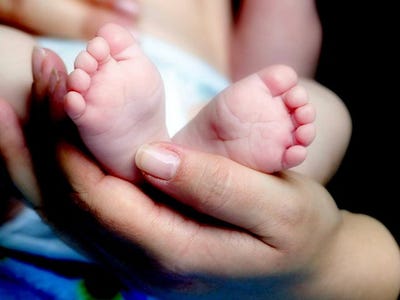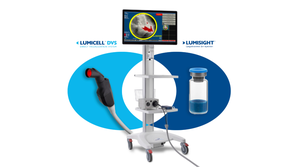March 20, 2017
A collaboration between Johnson & Johnson Consumer Inc. and Rest Devices Inc. demonstrates what can be accomplished when a large corporation like J&J pairs up with a small startup. The companies recently launched a smart, personalized baby sleep coaching app called Nod, that leverages Rest Devices' Mimo Baby wearable monitor, and J&J's clinicall-validated behavioral technqiues developed by pediatric sleep experts.
Amanda Pedersen

Johnson & Johnson Consumer Inc. collaborated with Rest Devices Inc. to launch an app designed to offer parents personalized sleep coaching for their babies.
A collaboration between Johnson & Johnson Consumer Inc. and Rest Devices Inc. shows what can be accomplished when a large corporation like J&J teams up with a small startup. The companies recently launched Nod, a smart, personalized baby sleep coaching app that leverages Rest Devices' Mimo Baby wearable monitor and J&J's clinically-validated behavioral techniques based on years of research with pediatric sleep experts.
Russ Walters, a research fellow of biophysics and modeling at Johnson & Johnson Consumer Inc., will present a case study on J&J's collaboration with Rest Devices Inc. at BIOMEDevice Boston, May 3-4, 2017. |
J&J has spent about 15 years working with pediatric sleep psychologists like Jodi Mindell, associate director of the sleep center at the Children's Hospital of Philadelphia, to develop and promote clinically-validated behavioral sleep techniques to help parents improve their baby's sleep. That knowledge ultimately led the company to launch the Johnson's Bedtime Baby Sleep App in 2012, which provided access to a panel of sleep analysts, including Mindell, who answered parents' sleep-related questions.
Meanwhile, Rest Devices developed the Mimo Baby Monitor, a device designed to relay a baby's sleep activity, movement, position, and respiration to parents' smartphones in real-time via the Mimo app. The app collects data from either a wearable monitor that looks like a baby's onsie, or from a sensor embedded into a crib sheet.
The two companies teamed up about a year ago to collaborate on a joint project that combines knowledge from both products into a new app called the Nod. Russ Walters, a research fellow of biophysics and modeling at Johnson & Johnson Consumer Inc., told Qmed the Nod app is designed to act as an automated sleep psychologist. The app maps the baby's sleep patterns and provides customized sleep coaching for parents to help their baby sleep better.
"It was a nice collaboration in several different ways," Walters said.
He said J&J has the advantage of being a large, global corporation with connections to key opinion leaders like Mindell. Rest Devices, on the other hand, is able to get things done a lot faster than J&J, Walters said. Combining J&J's size and resources with the smaller company's agility enabled the companies to take the app to market a lot more quickly, he explained.
"Parents often turn to books, web resources, or expensive sleep coaches to find the right sleep training techniques for their babies," said Dulcie Madden, CEO and co-founder of Rest Devices. "Nod's intelligent system will deliver customized insights and recommendations to parents that mirror their unique style of parenting."
The Nod app is designed to first learn parents' goals, behaviors, and routines for their baby's sleep, then create customized sleep advice for each baby based on expert techniques.
At the BIOMEDevice Boston conference, May 3-4, Walters will present a case study on J&J's collaboration with Rest Devices. He will discuss the collaboration, and ways the techniques can be applied to other connected medical devices.
Amanda Pedersen is Qmed's news editor. Contact her at [email protected].
About the Author(s)
You May Also Like


